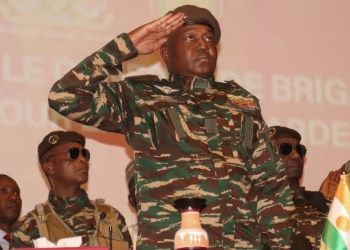Experts are calling for an immediate stop to the supply of weapons to Sudan’s warring factions, emphasizing that disarming both sides is the only way to end the devastating conflict.
Former Tanzanian Chief Justice Mohamed Osman Chande, who leads the UN fact-finding mission in Sudan, stressed that while sanctions may deter some actions, they have failed to prevent the Sudanese Armed Forces (SAF) and the Rapid Support Forces (RSF) from acquiring weapons and continuing the violence.
Speaking at a symposium hosted by the Wayamo Foundation, Chande highlighted reports of severe human rights violations, including sexual violence, forced marriages, and slavery, particularly in Nyala, Al Fasher, Khartoum, and Omdurman.
Experts at the event explored how technology and open-source investigations could enhance accountability for international crimes, with a focus on tracking financial networks that fund armed groups.
Mikel Delagrange, a senior legal advisor at Wayamo, emphasized the importance of identifying these financial backers, while UN advisor Tina Alai called for the establishment of hybrid courts in Sudan, similar to those used in Rwanda and Sierra Leone, to ensure accountability where the ICC cannot intervene immediately.
Christopher Kiyaseh from the Center for Advanced Defense Studies (C4ADS) underscored the role of digital tracking in exposing illicit networks fueling the conflict. He explained that these networks leave digital trails, which can be used to follow financial transactions and support strategic litigation.
The experts concluded that combining legal frameworks, judicial innovation, and international collaboration offers a strong approach to achieving justice in Sudan.















